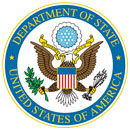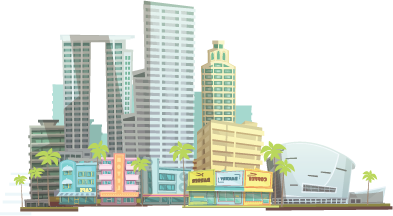-
Capital:
Budapest
-
Currency:
Forint
-
Time zone:
UTC+1 (CET)
-
Driving side:
Right
-
Country calling code:
-
Language(s):
Hungarian
Hungary: An Overview
Hungary is steeped in old-World history, yet it has an air of cosmopolitan refinery. A landlocked country in central Europe it is a mecca for classical music and art. Hungarian fare—like goulash is low brow delicious; conversely the café culture is somewhat elegant much like that of their Austrian neighbors. Hungary became a Schengen member in 2007 and welcomes more than 6 million international tourists each year.
Travel Documents
Your passport must be valid for at least three months beyond your planned date of departure from the Schengen area. You must have at least one blank page for stamps in your passport. If your stay is beyond 90 days, you will need a Travel Visa. If you are a citizen of and ETIAS-eligible country, you will need an approved ETIAS to travel to Hungary beginning in 2021. Learn more about the application process and sign up for ETIAS alerts to get the latest news.
Be sure to make photo copies of all your travel documents to take with you on your trip. It also makes sense to leave copies with a family member or friend back home.

Hungary : An Overview
Szabadság tér 12
H-1054 Budapest
Hungary
Telephone: (36-1) 475-4400
Web site: https://hu.usembassy.gov/

Emergency Hungary Telephone Numbers
| Police: |
107
|
|---|---|
| Ambulance: |
104
|
| Fire and Rescue: |
105
|
| European Union's universal emergency number: |
112 (112 is the equivalent to 911 in the US)
|
Where to Go
-

The City
The ancient city of Budapest is divided by the Danube River which is fitting as the city is a wonderful contradiction. World-class opera juxtaposed with bikini clad tourists frolicking lakeside, majestic architecture-lined squares contrasted with drab communist era statues, the public Széchenyi Baths in the city park opposed to the formality of Hungarian National Gallery at home in Buda Castle. Sprawling, the city pulses with a delicious cocktail of arts and culture, fine food and wine, nightlife, nature, fashion, and art. For some prime people-watching and market shopping, stroll the Great Market Hall ("Nagyvásárcsarnok"), a neo-Gothic indoor mall. Some of the most glorious sights of Budapest shine brightest when the sun goes down. Lighting on bridges create dancing radiance on the Danube; a heady and romantic sight. Historic and contemporary hotels perched at the river’s edge are highly sought after.
-

The Mountains and Countryside
The Villány Mountains are home to the Castle of Siklós, built during the late 1200s, it is a striking medieval building that stands guard on the southern Hungarian border. Marvel at the gorgeous views of the Villány wine region to the north and the Croatian countryside to the south. Tour the castle museum to step back in time to its noble history. The charming town of Villány, which sits in the heart of one of Eastern Europe’s oldest wine regions, is an oenophiles dream. Small boutique wineries—more than 50—are internationally recognized, ensuring any cellar crawl here will be rewarding. Hévíz is a spa town in the south. Its name translates to "hot water" and it is home to one of the largest thermal lakes anywhere. Spa resorts, enchanting country hotels and castle accommodations pepper the Hungarian countryside.
-

Lake and Beaches
The Balaton area in the Transdanubian region is home to Lake Batalon. The largest lake in Central Europe is oft called “The Hungarian Sea” and it beckons vacationers to its gentle shores. Balatonfüred is the region's oldest resort town where sailing and boating abound. On a quaint peninsula on the north shore of the lake is Tihany. Strolling lavender fields, floral walkways and lush trails is part of the peninsula’s magical appeal. Tihany Abbey, circa 1055, is a majestic Benedictine monastery there. The pale green waters and forested hills frame the magnificent baroque and rococo appointments of the church, crypt and museum.
-

Neighboring Countries
Hungary is bordered by Austria, Slovakia, Ukraine, Romania, Serbia, Croatia, and Slovenia. It, along with Austria, Slovakia and Slovenia are part of the Schengen Area. Croatia, and Romania are expected to become Schengen members this year. Schengen member states will require an approved ETIAS visa waiver for entry beginning in January of 2021.
Travels Tips
ELECTRICAL OUTLETS AND ADAPTERS FOR US PRODUCTS
Hungary uses C, & F Plugs. You will need an adapter and maybe a transformer to use products made for the US electrical grid. Hungary runs on a 230 (220) volts, 50 hertz AC current, while US runs on 120 (110) volts and a frequency of 60 Hz AC current. Many American products are able to run on 230 (220) volts, 50 hertz AC current. You need to check your electrical product to make sure it is labeled "dual voltage" before you plug it in, otherwise you may burn out the components rendering it useless. Learn more about the different European plugs and currents here.
PICKPOCKETS AND THEFT
Nearly all crimes suffered by tourists in Hungary are nonviolent and avoidable, however you should be prepared for pickpockets. Europe’s transit systems are notorious for pickpockets.
- Being vigilant is your best friend when you are in high theft areas: train stations, trains, city buses, subways and open air shopping areas.
- Store important documents, money and phones in zippered or buttoned pockets, specialized travel day bags or a money belt.
- You should never leave your bags unattended! Make sure you can see them at all times. Better yet, you should keep in physical contact with your bags in public places.
MOBILE PHONES
First, be sure to check that your phone will work in Hungary. The easiest way to find out is to check with your mobile phone service provider. You can also find out if your service provider offers international plans for Hungary. We recommend signing up for an international plan if you plan on using your smart phone to connect to the internet or use the travel apps you may have installed on your phone. If you decide not to sign up for an international calling and data plan, costs can add up very quickly!
Free WI-FI can be easy to access, but can be very slow or not available in the countryside. Sign up for a Virtual Private Network (VPN) services to secure your phone, tablet or computer when using public Wi-Fi networks. This prevents hackers from accessing your device when using free Wi-Fi.
HUNGARY TAXIS, BUSES AND SUBWAYS
- Taxis - A good rule of thumb is use a prominent taxi service, one that has a company logo and a telephone number on the car. Avoid using taxis that just have a taxi light on the top of the car. Make sure the taxi driver is using the correct rate for the time of the day and day of the week. Nighttime and weekends have higher rates. When taking a taxi that has a set fare, for example to a Hungary airport, make sure you establish the price before you leave.
- Buses and subways - Most European cities have a great public transportation system. The cost of a transit pass for the entire time of your stay can equal the cost of one or two taxi rides. Check out the ticket options that are offered at subway stations, bus terminals and train stations. Get a transit map or download a transit app to your smart phone. Google maps have transit maps for most Hungary cities.
EXCHANGING CURRENCY IN HUNGARY
The most important thing you should understand is how exchange rates work. The Hungarian forint usually has a lower exchange rate compared to the US dollar. So if you want to get 100 Hungarian forints and the exchange rate is $.33 for one Hungarian forint, it will cost you .33 cents to get 100 Hungarian forint. There are many currency conversion apps you can down load to your smart phone to get up-to-date exchange rates.
You can use Euros in Hungary, however be careful on what conversion rate you receive. Many people like to get euros through their bank before they leave for their trip. Check out what fees the bank charges for this service. Different banks have different fees. These fees can be expensive, so it pays to shop around.
DEBIT CARDS AND ATMS
First, make sure that your ATM card can be used internationally. Second, see what your bank charges for international ATM fees. Third, see what is the maximum amount you can withdraw each day. While there are fees associated with using an ATM card, they are usually much less than the fees charged by Hungary banks and currency exchange companies. ATM fees are a flat fee not a percentage. So when you are withdrawing money using your ATM card, take out the maximum amount to reduce amount of ATM fees you will incur. Also it is a good idea to use bank ATMs instead of third party ATMs, which can charge higher fees.
CASH VS CREDIT CARDS
Using local cash is key for the European tourist. Some businesses do not accept credit cards and many businesses charge a higher price when using a credit card due to the credit card fee they pay to the credit card company. Many businesses will take US dollars, but then you will need to figure out the exchange rate to ensure you are being charged the correct amount and receiving the correct change. Having smaller bills is better than large bills. Also remember to keep your cash secure in pickpocket proof pockets or a money belt.
US credit cards are widely accepted across Hungary. Just in case, check with bank to be sure your credit card will work in Hungary. Before you leave on your trip, sign up for a credit card that has no foreign transaction fees. If you don’t, you may be in for a surprise when you get your credit card statement that contains lots of foreign transactions and currency conversion fees.
It makes sense to use a credit card for hotels, car rentals, Eurail pass, upscale businesses and restaurants. Limit the number of credit cards you take with you. Bring one back up credit card in addition to the main card you intend to use. Be sure to contact your credit card company and let them know the dates you will be traveling abroad.
TIPPING IN HUNGARY
Generally speaking, if someone in the service industry provides great service for you, a tip of a couple of euros is acceptable, but not required.
- Restaurants - 5% to 10%, with 10% being for over the top service. Be sure to check to see if service has already been included in the bill
- Taxis - round up to the nearest Euro, for example, if the fare is 5 euro give them 6
- Hotel porters - one euro for every bag

